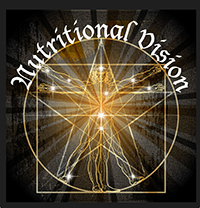GreenMedInfo Summary
Abstract Title:
Total cranberry extract versus its phytochemical constituents: antiproliferative and synergistic effects against human tumor cell lines.
Abstract Source:
J Agric Food Chem. 2004 May 5 ;52(9):2512-7. PMID: 15113149
Abstract Author(s):
Navindra P Seeram, Lynn S Adams, Mary L Hardy, David Heber
Article Affiliation:
Navindra P Seeram
Abstract:
Cranberries (Vaccinium macrocarpon Ait.) are an excellent dietary source of phytochemicals that include flavonol glycosides, anthocyanins, proanthocyanidins (condensed tannins), and organic and phenolic acids. Using C-18 and Sephadex Lipophilic LH-20 column chromatography, HPLC, and tandem LC-ES/MS, the total cranberry extract (TCE) has been analyzed, quantified, and separated into fractions enriched in sugars, organic acids, total polyphenols, proanthocyanidins, and anthocyanins (39.4, 30.0, 10.6, 5.5, and 1.2% composition, respectively). Using a luminescent ATP cell viability assay, the antiproliferative effects of TCE (200 microg/mL) versus all fractions were evaluated against human oral (KB, CAL27), colon (HT-29, HCT116, SW480, SW620), and prostate (RWPE-1, RWPE-2, 22Rv1) cancer cell lines. The total polyphenol fraction was the most active fraction against all cell lines with 96.1 and 95% inhibition of KB and CAL27 oral cancer cells, respectively. For the colon cancer cells, the antiproliferative activity of this fraction was greater against HCT116 (92.1%) than against HT-29 (61.1%), SW480 (60%), and SW620 (63%). TCE and all fractions showed>/=50% antiproliferative activity against prostate cancer cells with total polyphenols being the most active fraction (RWPE-1, 95%; RWPE-2, 95%; 22Rv1, 99.6%). Cranberry sugars (78.8 microg/mL) did not inhibit the proliferation of any cancer cell lines. The enhanced antiproliferative activity of total polyphenols compared to TCE and its individual phytochemicals suggests synergistic or additive antiproliferative interactions of the anthocyanins, proanthocyanidins, and flavonol glycosides within the cranberry extract.
Academic Cite:
Navindra P Seeram, Lynn S Adams, Mary L Hardy, David Heber. Total cranberry extract versus its phytochemical constituents: antiproliferative and synergistic effects against human tumor cell lines. J Agric Food Chem. 2004 May 5 ;52(9):2512-7.
Pubmed-Cite:
Navindra P Seeram, Lynn S Adams, Mary L Hardy, David Heber. Total cranberry extract versus its phytochemical constituents: antiproliferative and synergistic effects against human tumor cell lines. J Agric Food Chem. 2004 May 5 ;52(9):2512-7. PMID: 15113149
GMI-Cite:
Navindra P Seeram, Lynn S Adams, Mary L Hardy, David Heber. Total cranberry extract versus its phytochemical constituents: antiproliferative and synergistic effects against human tumor cell lines. J Agric Food Chem. 2004 May 5 ;52(9):2512-7. PMID: 15113149
Article Published Date : May 04, 2004
Study Type : In Vitro Study
Additional Links
Substances : Anthocyanins : CK(372) : AC(136), Cranberry : CK(349) : AC(69), Flavonoids : CK(1215) : AC(379), Polyphenols : CK(1109) : AC(390)
Diseases : Cancers : CK(7) : AC(3), Colon Cancer : CK(749) : AC(430), Oral Cancer : CK(223) : AC(86), Prostate Cancer : CK(1586) : AC(463)
Pharmacological Actions : Antiproliferative : CK(2546) : AC(1685)
Additional Keywords : Natural Substance Synergy : CK(540) : AC(249), Plant Extracts : CK(7645) : AC(2539), Proanthocyanidins : CK(203) : AC(54)

No Comments Yet